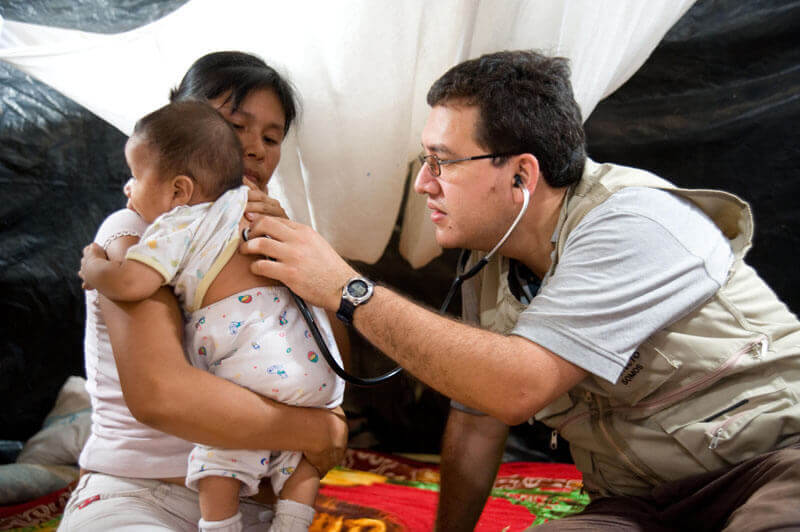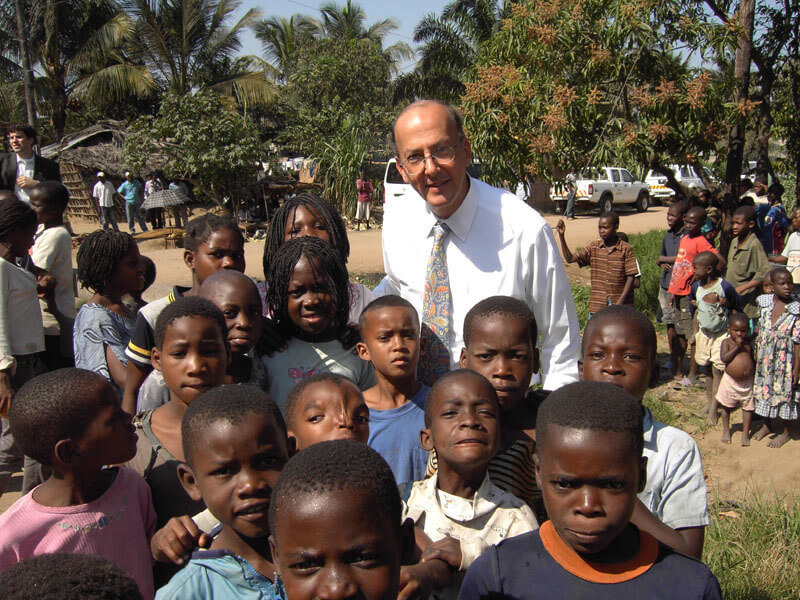Roger GlassUS National Institutes of Health
Dr. Roger Glass is Director of the Fogarty International Center at the US National Institutes of Health.
Roger I. Glass, M.D., Ph.D., is director of the Fogarty International Center at the National Institutes of Health (NIH), where he oversees research and research training programs for U.S. and foreign scientists working to improve health in the developing world. Over the last four decades, about 5,000 scientists worldwide have received significant training through Fogarty programs. In addition, Dr. Glass serves as Associate Director for Global Health to the NIH Director, providing guidance on global health, facilitating international research collaborations and convening the world’s best scientific minds to address the most pressing health research questions.
As we commemorate World AIDS Day 2011, I am both encouraged by the recent discoveries that are improving and prolonging lives and reminded of the challenges that remain in our battle to defeat this terrible disease.
I was heartened to gather earlier this year with many of Africa’s premier infectious disease scientists and medical educators as we—together with PEPFAR—launched our Medical Education Partnership Initiative. Through this effort, we hope to make an enduring impact on the quality and availability of health care workers and researchers throughout the continent. This is vital to our goal to establish true country ownership and enable Africans to set their own research agendas, based on the most pressing local needs.

I was also fortunate to see firsthand many of the researchers funded by the National Institutes of Health who are working on the front lines. During this year—the 30th anniversary of the beginning of this epidemic—it is appropriate we acknowledge the advances made against this and other infectious diseases by the National Institute of Allergy and Infectious Diseases (NIAID) and its director, Dr. Anthony S. Fauci, and by the many scientists around the world supported by NIAID and other institutes and centers of the NIH.
But if the great advances have been made standing on the shoulders of giants, in Isaac Newton's phrase, I think Fogarty has a hand—or a shoulder, perhaps—in a number of the research breakthroughs. Trainees supported through Fogarty-funded grants have helped contribute to the work that led to this progress. We're pleased to see our 20-year investment in some of these developing country sites paying off with trainees who are well qualified to move forward the research funded by NIAID and others.
A singular breakthrough in the news is the study known as HPTN 052, which revealed that men and women infected with HIV reduced the risk of transmitting the virus to their sexual partners through early initiation of oral antiretroviral therapy (ART). Fogarty grantee Dr. Myron "Mike" Cohen, who runs the global health institute at the University of North Carolina, is the principal investigator of the study, funded mainly by NIAID with additional funding from other institutes.

This is the first randomized trial to definitively indicate that an HIV-infected individual can reduce sexual transmission of HIV to an uninfected partner by beginning ART sooner. This adds very strong scientific evidence that you can use treatment of HIV as an effective prevention modality by decreasing the possibility that a person who is infected would transmit HIV to their sexual partner. More than 30 Fogarty-supported trainees in Malawi, India, Botswana and Thailand worked on the study.
Very recently, the conclusions of this discordant couples trial were buttressed by results from a pre-exposure prophylaxis, or PrEP, trial that showed that heterosexual participants who took a daily Truvada pill had a significantly lower chance of being infected.
Fogarty trainees are also at the forefront of the studies to determine the effectiveness of an antiretroviral microbicide (tenofovir gel) in preventing sexually transmitted HIV infection in women. The training was supported by a grant under Fogarty's AIDS International Training and Research Program (AITRP). Dr. Quarraisha Abdol Karim of Columbia University, who directed the CAPRISA-004 study, is the director of the Fogarty training grant and has mentored many trainees continuing this work.
Moreover, Fogarty Scholar Dr. Kogie Naidoo has reported a randomized clinical trial conducted at Durban demonstrated that antiretroviral treatment should begin at the same time as TB treatment. This result has caused the WHO to change its guidelines for TB treatment.
Finally, Dr. Sten Vermund of Vanderbilt University has directed a multi-country study, funded partly by NIAID with some Fogarty trainees participating, demonstrating the effectiveness of ART therapies in stopping mother-to-child transmission of the HIV virus. Sten's program has trained 64 individuals in degree programs, nearly all of whom have returned to their home countries.
There remains much to be done in the effort to achieve "a world without AIDS," in Dr. Fauci's phrase. As we mark World AIDS Day and the 30th anniversary of that effort, Fogarty is pleased to have played a significant role in training many of the researchers who are positioned to lead the battle.